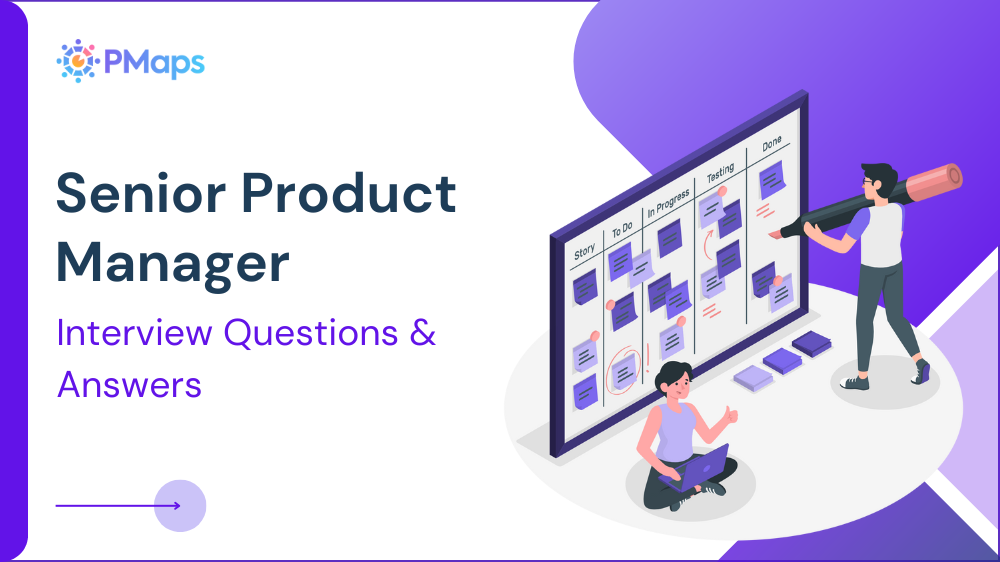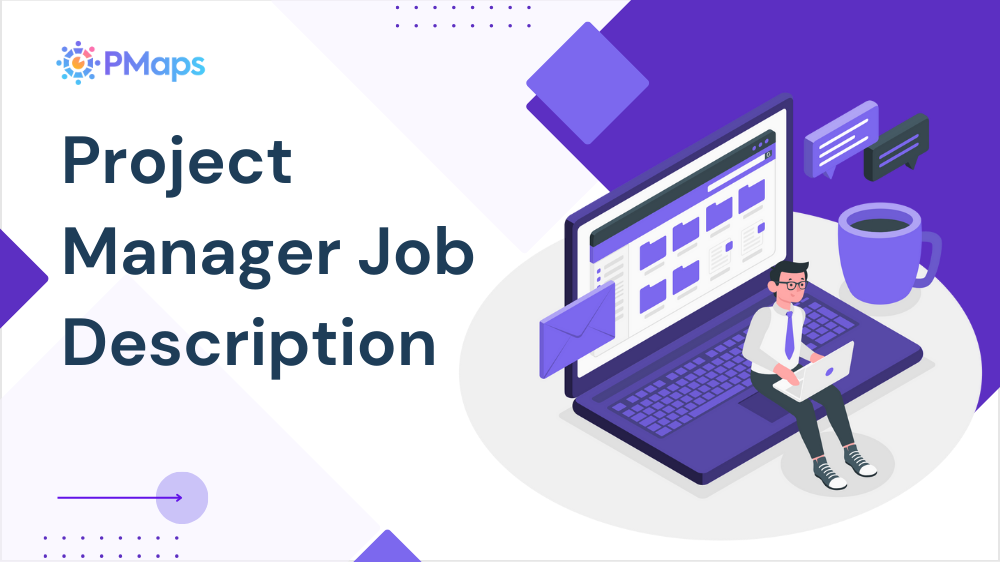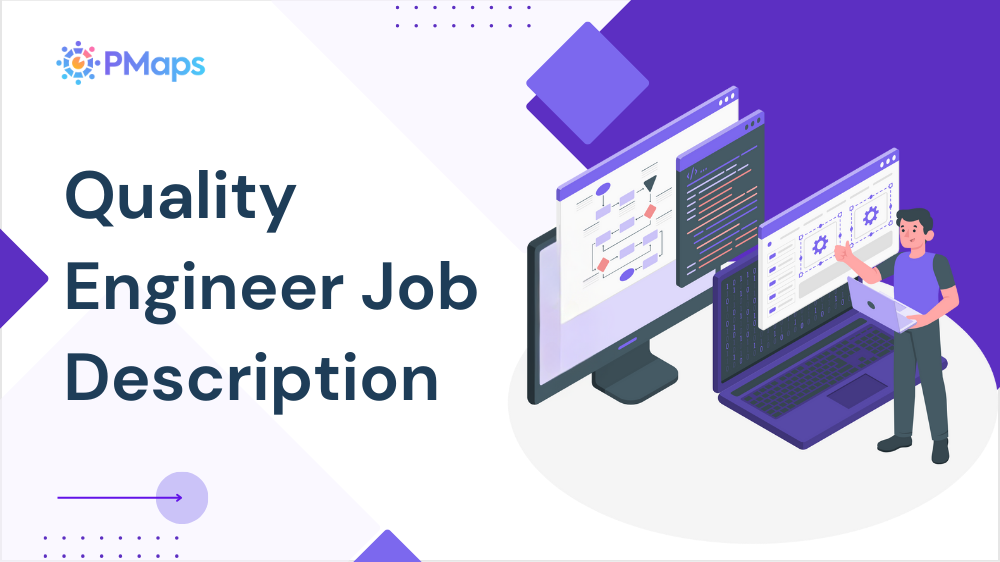
Senior product manager interview questions help assess a candidate’s ability to lead cross-functional teams, define product vision, and deliver high-impact outcomes. At this level, it’s not just about execution—it’s about strategic ownership, stakeholder alignment, and long-term product growth.
Impressed by their answers? Put their product thinking to the test, launch the Senior Product Manager Assessment now.

Finding the right senior product manager means evaluating how they make decisions, handle ambiguity, and manage trade-offs in fast-moving environments. This guide provides structured interview questions—general, behavioral, situational, and technical—designed to identify leaders who can shape your product roadmap while driving measurable business results.
General Interview Questions for Senior Product Manager
These questions assess a candidate’s foundational understanding of product strategy, communication style, and ability to balance business goals with user needs. Ideal responses will reflect leadership maturity, decision clarity, and ownership over outcomes—not just delivery.
1. How do you define product success?
What it Assesses:
This checks strategic thinking and clarity around metrics. It shows whether the candidate thinks beyond features and focuses on user and business outcomes.
What to Listen For:
Look for a balanced view of quantitative KPIs (retention, revenue, NPS) and qualitative insights. Strong candidates tie success to the product’s value delivery.
Sample Ideal Answer:
“I define success by adoption rate, user satisfaction, and contribution to key business KPIs. I also look at engagement patterns and ongoing feedback to ensure we’re solving the right problems.”
2. How do you prioritize features when resources are limited?
What it Assesses:
This evaluates prioritization frameworks, decision-making under constraint, and product judgment.
What to Listen For:
Candidates should describe structured methods—RICE, MoSCoW, or impact-effort matrices—and mention how they involve stakeholders in tough trade-offs.
Sample Ideal Answer:
“I use RICE scoring and consider technical effort, business value, and urgency. I align trade-offs with leadership and revisit priorities during sprint reviews.”
3. What’s your approach to roadmap planning?
What it Assesses:
It reveals how the candidate thinks long-term and aligns product vision with execution cycles.
What to Listen For:
Expect mention of OKRs, quarterly themes, stakeholder alignment, and buffer zones for iteration. Look for signs of proactive vs. reactive planning.
Sample Ideal Answer:
“I structure roadmaps around OKRs and quarterly planning. I gather cross-functional input early and maintain flexibility to shift based on feedback or new data.”
4. How do you collaborate with design and engineering teams?
What it Assesses:
This tests the candidate’s ability to lead without authority, communicate clearly, and manage execution effectively.
What to Listen For:
Strong answers show respect for others’ expertise, structured rituals (stand-ups, grooming), and a focus on shared goals over command-style leadership.
Sample Ideal Answer:
“I host structured kickoffs, align on definitions of done, and stay close during build cycles. I empower design and engineering to flag risks early and shape delivery together.”
5. Can you describe a product you’ve led end-to-end?
What it Assesses:
Ownership, leadership consistency, and ability to take a product from concept to launch—and beyond.
What to Listen For:
Look for complete narratives—from discovery and planning to execution, measurement, and iteration. Bonus if the candidate names challenges faced and lessons learned.
Sample Ideal Answer:
“I led a B2B onboarding tool from research to launch. We improved trial conversion by 18%. I ran discovery, managed stakeholder updates, and prioritized based on user friction data.”
Liked the questions? Tap here to revisit the full Senior Product Manager Job Description before your next shortlist.
Behavioral Interview Questions for Senior Product Manager
Behavioral questions uncover how candidates have navigated complex product situations in the past. These scenarios highlight their leadership approach, communication style, and ability to balance priorities, especially when stakes are high or outcomes are uncertain.
1. Tell me about a time you made a product decision that wasn’t popular.
What it Assesses:
This tests decision ownership and emotional resilience. It reveals how candidates balance long-term vision against short-term discomfort or stakeholder pushback.
What to Listen For:
Look for confidence in data, willingness to engage in tough conversations, and a calm, persuasive communication style that helped gain alignment.
Sample Ideal Answer:
“I paused a high-profile feature due to scalability concerns. I walked stakeholders through the technical risk, presented alternate priorities, and earned support by focusing on long-term reliability.”
2. Describe a time when you missed a product goal. How did you respond?
What it Assesses:
Accountability, learning mindset, and ability to lead through setbacks.
What to Listen For:
Candidates should own the miss without excuses, show structured retrospectives, and describe process changes made as a result.
Sample Ideal Answer:
“A retention experiment underperformed. I led a retro, involved customer support in the diagnosis, and uncovered onboarding gaps. We revised activation flows and saw improved engagement the next quarter.”
3. Tell me about a feature you killed. What led to that decision?
What it Assesses:
Product intuition, humility, and user-centered thinking.
What to Listen For:
Look for data-backed decisions, willingness to pivot, and clarity around sunk cost. Candidates should focus on learning and iteration, not personal attachment.
Sample Ideal Answer:
“A dashboard widget had low usage. After interviews, we found it was redundant. We retired it, repurposed elements elsewhere, and simplified the overall UX.”
4. Share an experience where you had to align conflicting stakeholder interests.
What it Assesses:
Cross-functional leadership and influence without authority.
What to Listen For:
Expect structured alignment tactics—shared objectives, user data, or facilitated trade-off discussions. The candidate should act as a bridge, not a blocker
Sample Ideal Answer:
“Marketing wanted speed, engineering needed refactor time. I set up a prioritization session using impact scores and tied decisions to customer feedback. We sequenced work and kept both sides engaged.
5. Describe how you supported your team through a major shift or product pivot.
What it Assesses:
Change leadership, team empathy, and morale management under ambiguity.
What to Listen For:
Strong candidates communicate early, maintain transparency, and foster team input. They should also mention how they kept momentum without burning out the team.
Sample Ideal Answer:
“When our roadmap shifted due to competitor moves, I re-framed priorities as a strategic opportunity. I updated OKRs, ensured everyone had clarity, and celebrated quick wins to keep energy up.”
Situational Interview Questions for Senior Product Manager
Situational questions present hypothetical but common product challenges. They help you evaluate how a candidate approaches uncertainty, makes high-impact decisions, and communicates under pressure—especially when dealing with conflicting goals or limited data.
1. A key feature you shipped is receiving negative user feedback. What do you do next?
What it Assesses:
Customer empathy, responsiveness, and ability to learn from real-world usage.
What to Listen For:
Look for structured feedback collection, prioritization of fixes, and a clear communication loop with users and internal stakeholders.
Sample Ideal Answer:
“I’d triage the issue based on severity and usage, analyze feedback themes, and involve UX in follow-up interviews. Then I’d adjust the roadmap and communicate transparently to rebuild trust.”
2. You’re asked to launch a product without enough data to validate the idea. How do you proceed?
What it Assesses:
Comfort with ambiguity, risk mitigation, and lean product practices.
What to Listen For:
Strong candidates describe ways to reduce risk—through pilot launches, user interviews, MVPs, or proxy metrics. Avoid guesses without structure.
Sample Ideal Answer:
“I’d propose a quick MVP or gated beta to gather directional feedback. I’d also align stakeholders on what assumptions we’re testing before scaling investment.”
3. Your engineering lead estimates double the timeline for a critical release. How do you handle it?
What it Assesses:
Negotiation, scope management, and trust-based collaboration.
What to Listen For:
Expect the candidate to validate estimates, revisit scope, and re-align cross-functional timelines. Bonus if they advocate for technical health while meeting business needs.
Sample Ideal Answer:
“I’d dig into the blockers, explore scope reduction options, and jointly present trade-offs to stakeholders. If needed, we’d adjust launch phasing to preserve credibility.”
4. A competitor just launched a similar feature. Your leadership team wants a fast response. What’s your move?
What it Assesses:
Strategic focus and avoidance of reactive decision-making.
What to Listen For:
Candidates should avoid panic builds. Look for data gathering, market impact assessment, and a measured response that aligns with user and business goals.
Sample Ideal Answer:
“I’d evaluate how our users are affected, gather intel, and validate the pressure to react. If there’s value in response, I’d propose a scoped plan aligned with our roadmap.”
Technical or Functional Interview Questions for Senior Product Manager
These questions test how candidates make technical trade-offs, use data to inform decisions, and partner with design and engineering. Senior product managers must balance business needs with technical realities while keeping long-term scalability in mind.
1. How do you decide between building a feature in-house or using a third-party solution?
What it Assesses:
Strategic judgment, technical cost awareness, and prioritization of speed versus control.
What to Listen For:
Strong answers weigh time-to-market, maintenance effort, security, and long-term flexibility. Expect structured comparisons based on team capacity and business context.
Sample Ideal Answer:
“I evaluate based on integration effort, licensing costs, roadmap alignment, and engineering bandwidth. If speed is critical and risk is low, I lean toward third-party solutions initially.”
2. How do you work with engineering to estimate effort and assess feasibility?
What it Assesses:
Collaboration, respect for engineering processes, and delivery planning.
What to Listen For:
Candidates should describe estimation rituals (t-shirt sizing, pointing), technical trade-off discussions, and ways they avoid overcommitting without undermining momentum.
Sample Ideal Answer:
“I involve engineers early, clarify assumptions, and break down complexity. We use story points or dev-led estimates in planning cycles, and I ask clarifying questions to protect their focus.”
3. What analytics tools have you used, and how do you apply data in decision-making?
What it Assesses:
Data fluency and the ability to shift from instinct to evidence-based thinking.
What to Listen For:
Look for familiarity with tools like Mixpanel, Amplitude, GA4, or Tableau. Strong candidates use data for validation, prioritization, and storytelling with stakeholders.
Sample Ideal Answer:
“I use Mixpanel and GA4 to track funnel conversion and feature usage. I rely on cohort analysis to guide roadmap decisions and pair data with customer interviews for context.”
4. How do you define and track product metrics over time?
What it Assesses:
Outcome thinking, analytical rigor, and ability to maintain focus post-launch.
What to Listen For:
Expect mentions of north star metrics, supporting indicators, and frameworks like AARRR or HEART. Bonus for cohort or retention tracking.
Sample Ideal Answer:
“I define a primary goal—like activation or revenue—and pair it with early indicators. I review dashboards weekly and adjust the backlog if metrics trend off-track.”
5. What’s your approach to handling technical debt in product planning?
What it Assesses:
Partnership with engineering and long-term thinking.
What to Listen For:
Strong responses reflect joint prioritization, visibility into backend trade-offs, and acknowledgment of hidden risks. Look for negotiation tactics that balance business value with platform health.
Sample Ideal Answer:
“I surface tech debt in sprint planning and create a space for engineering to estimate its impact. We align on cost versus user value to justify backlog space for refactors.”
Pro Tips for Interviewing a Senior Product Manager
Interviewing senior product managers requires a shift from task-based evaluations to strategic discovery. At this level, you're hiring someone who influences outcomes across teams—so dig into how they think, prioritize, and lead under pressure.
1. Prioritize decision-making over delivery speed.
Look beyond how fast they’ve shipped. Ask how they evaluated what to build, what they said no to, and how they structured those decisions. Speed without strategy leads to wasted effort.
2. Push for clarity on metrics and outcomes.
Senior PMs should speak fluently about impact—not just activity. Ask how they measured success and adjusted strategy when metrics shifted. Vague answers around “building cool features” are red flags.
3. Test their ability to influence without authority.
Product managers don’t have direct control over most collaborators. Ask how they’ve handled alignment across departments or earned trust from skeptical stakeholders. Strong candidates will show empathy, communication, and confidence.
4. Ask about product failures and what they changed.
Great product managers fail often—but learn well. Explore what went wrong, what they did about it, and how the experience shaped their future approach. Avoid candidates who blame others or deflect.
5. Evaluate their customer connection, not just market knowledge.
A senior PM should know their users deeply. Ask how often they speak with customers, what insights surprised them, and how feedback changed product direction. Insightful answers separate operators from leaders.
Conclusion
A senior product manager plays a pivotal role in shaping product vision, aligning teams, and delivering measurable outcomes. The right candidate balances strategic thinking with execution clarity and keeps the user at the center of every decision. These questions help you assess depth, structure, and leadership under real-world pressures.
If you're looking to structure interviews better or evaluate product leadership more effectively, book a free demo or connect with us at 8591320212 or assessment@pmaps.in for support in making confident hiring decisions.



.png)





